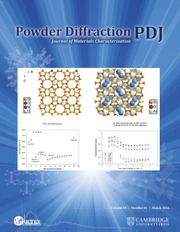Article contents
Residual stresses in novel metal/ceramic composites exhibiting a lamellar microstructure
Published online by Cambridge University Press: 06 March 2012
Abstract
The aim of this study is to analyze the mechanics of a new class of metal/ceramic composites on a mesoscopic length scale. These composites are produced by melt infiltration of porous ceramic preforms produced by freeze casting and subsequent sintering. This production route has a high application potential since it offers a cost-effective way to obtain composites with ceramic content in the 30 to 70 vol. % range. The as-produced material exhibits a hierarchical domain structure with each domain composed of alternating layers of metallic and ceramic lamellae. Residual stresses present in all phases of the composite produced by infiltrating alumina preforms with a eutectic aluminum-silicon alloy have been measured. Integral as well as spatially resolved measurements were carried out on single-domain samples at the high-energy, energy-dispersive diffraction (EDDI) beamline at the synchrotron radiation source BESSY (Berlin, Germany). Results show that strongly fluctuating residual stresses are introduced by the production process, which can be rationalized by taking into account the thermal expansion mismatch of alloy and preform.
Keywords
- Type
- Applications Of Residual Stress Analysis
- Information
- Copyright
- Copyright © Cambridge University Press 2009
References
- 4
- Cited by


